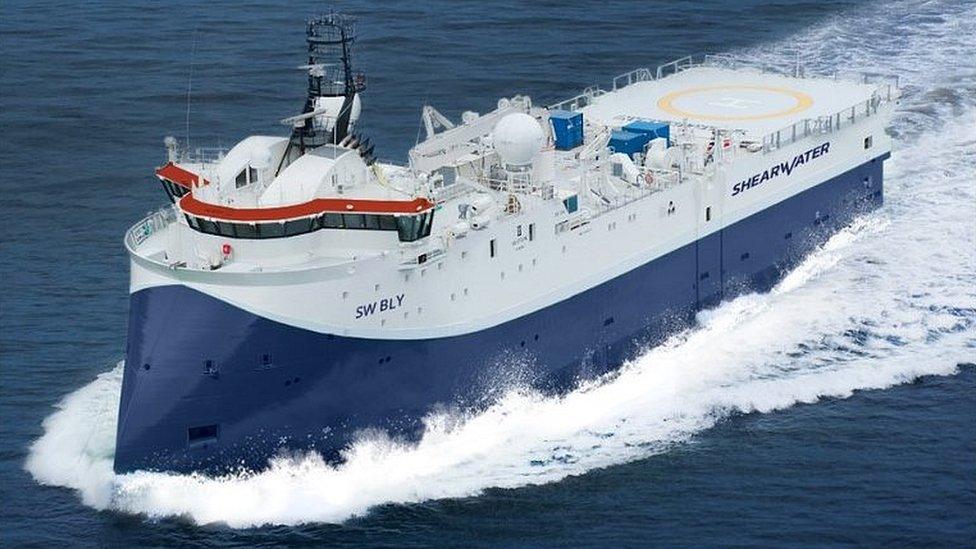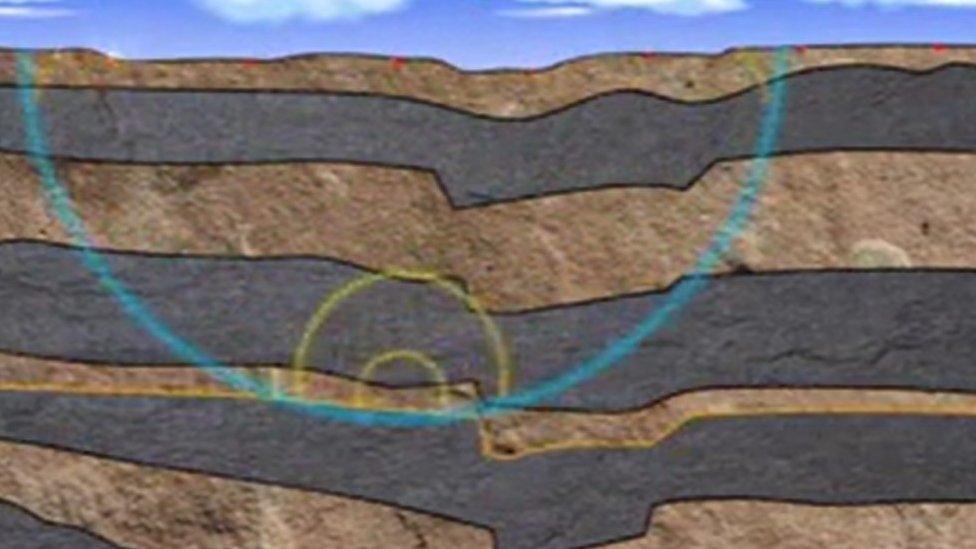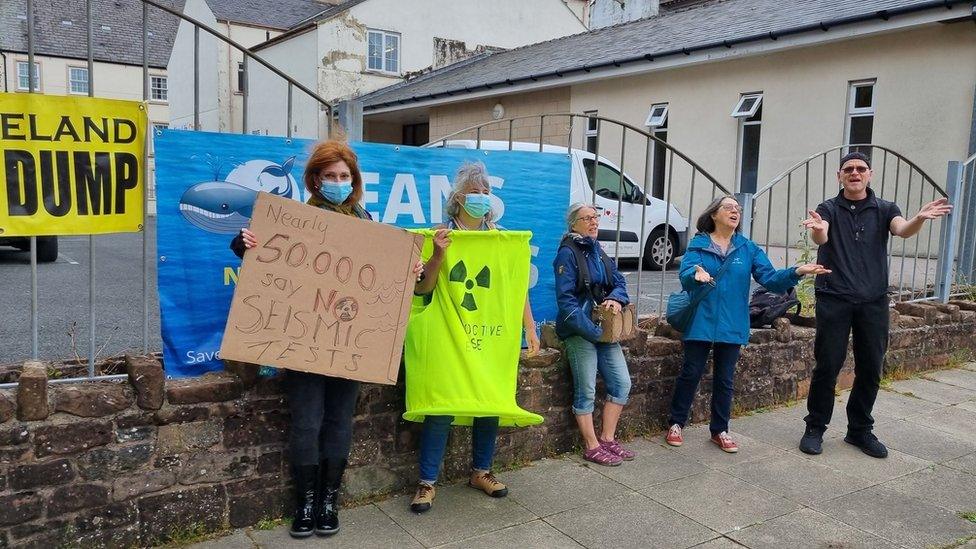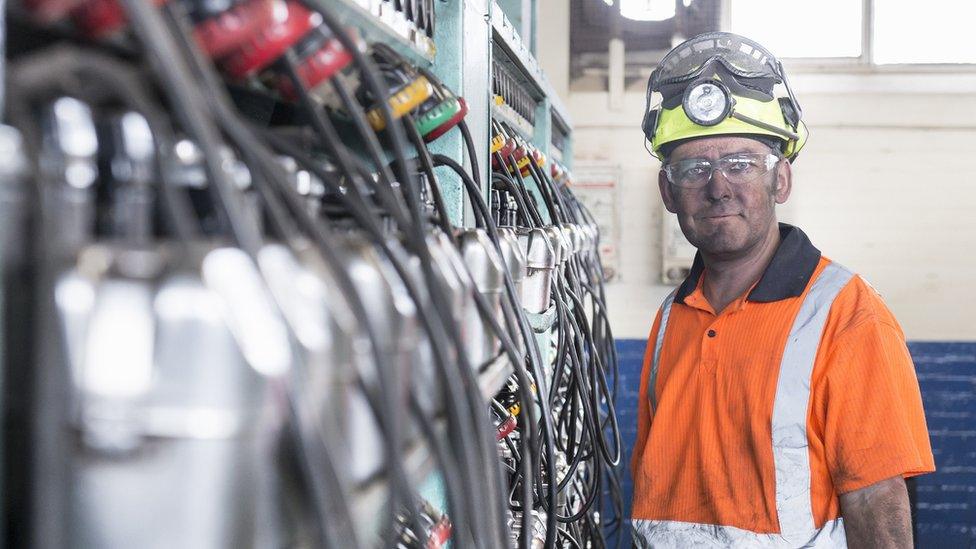Nuclear waste protesters claim acoustic tests damage marine life
- Published

A team of experts is onboard the SW Bly watching for marine mammals which need to be cleared from the area
A marine geophysical survey has begun off the Cumbrian coast despite 50,000 protesters signing a petition calling for a halt to the work.
The seismic research, which uses sound waves, will determine if the seabed contains suitable geology for underground nuclear waste storage.
However, protesters claim the tests cause stress to marine life.
Nuclear Waste Services (NWS), which commissioned the work, said it was committed to environmental protection.
Mid and South Copeland are among areas in the UK mooted for the location of what is known as a Geological Disposal Facility (GDF).
Tests are now being carried out to assess the seabed's suitability and are expected to last between two and three weeks.
The seismic technique involves sending soundwaves, which echo back from the seabed, enabling 3D images to be made of the rocks.
A team of experts is onboard the research ship SW Bly off Whitehaven watching for marine mammals which need to be cleared from the area prior to the tests.

The technique involves sending soundwaves similar to ultra-sound scans in medicine enabling 3D images to be made of the rock
Campaigner Marianne Birkby, from Radiation-Free Lakeland, said: "People don't want it, there's a petition of more than 50,000 signatures.
"Seismic blasting is banned in other countries. This is just the first onslaught on the Irish Sea and it should stop."
Volker Deecke, a wildlife conservation expert based at Cumbria University, said that research proved that seismic surveys harmed marine life, especially whales and dolphins, by causing them stress.
The Mid and South Copeland GDF community partnerships are separate groups made up of members including the GDF developer, the local authority and community members.
Their roles are to discuss GDF with the public, keeping residents engaged in the process.
Even if the area is found to be suitable it would be many years before nuclear waste is buried off the coast.
Councillor David Moore, a member of the Mid Copeland GDF partnership, and deputy mayor of Copeland Council, said: "We have had odd people and they are in the minority, that have expressed concerns and when we've explained the process they are comfortable with it."
A statement from NWS said: "We are committed to environmental protection and have complied with all processes relating to permissions required for the surveys."

Follow BBC North East & Cumbria on Twitter, external, Facebook, external and Instagram, external. Send your story ideas to northeastandcumbria@bbc.co.uk, external.
- Published13 July 2022

- Published8 December 2022

- Published28 December 2021
